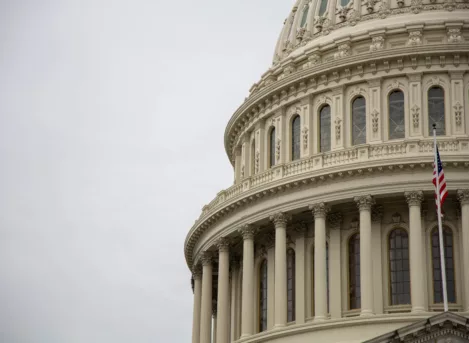Are patent trolls hurting your business’ bottom line? Whether you are a large publicly traded company or a small privately owned business, you’re not alone. Patent trolls are targeting businesses across the spectrum, including supermarkets, banks, credit unions, realtors and hotels. Research shows that patent trolls are costing U.S. businesses $29 billion annually in direct out-of-pocket costs. These costs naturally affect businesses in other ways as well, such as decreases in their investments in R&D, and have broader social and economic implications. For example, the potential costs of defending actions initiated by patent trolls could result in venture capitalists investing less money in startups. For a state like Rhode Island whose economic future hinges in part on retaining young, educated, and highly skilled workers, the secondary consequences from patent trolling could be significant for the economy over time. In short, patent trolling is an issue that all businesses should be aware of, whether it directly impacts them yet or not.
Measures to halt patent trolling continue to be proposed at the federal level in both the House and the Senate. Two of the leading bills are the Innovation Act and the Protecting American Talent and Entrepreneurship (PATENT) Act. The Innovation Act, which proposes significant amendments to the patent statute and the Leahy-American Invents Act, was introduced in the House in February of 2015. It is the same bill that the House passed in 2013 by an overwhelming margin, but which the Senate never acted on. The PATENT Act was introduced in the Senate in April 2015. For the most part, the Innovation Act and the PATENT Act are very similar, but there are some differences worth noting.
Both acts require that claims in a patent infringement complaint be plead with greater specificity. In addition, to reduce the costs of discovery, both acts limit the discovery that can be conducted prior to the court’s resolution of certain preliminary motions. The two acts also seek to promote transparency in patent ownership by requiring plaintiffs to disclose to the court, the defendants, and the Patent and Trademark Office who they are and any other companies that have a financial stake in the outcome of the lawsuit.
The most controversial provisions relate to attorneys’ fees, which the two acts address differently. The Innovation Act provides that attorneys’ fees be awarded to the prevailing party in a patent suit unless the court finds that the losing party’s position and conduct were “reasonably justified in law and fact” or that “specific circumstances” exist that would make fee shifting unjust. In contrast, the PATENT Act does not contain this presumption in favor of fee-shifting and instead permits an award of attorneys’ fees to the prevailing party only if the court finds that the losing party’s position was “not objectively reasonable in law or fact” or that the losing party’s conduct was “not objectively reasonable.” Some argue that the PATENT Act’s more lenient approach to attorneys’ fees would impose such a high burden for imposing fee-shifting that it would not effectively deter patent trolling.
While proponents of the Innovation Act and the PATENT Act believe that the proposed measures would curb the abusive litigation perpetuated by patent trolls, critics of both bills are concerned that some of the provisions would harm legitimate businesses that rely on their ability to enforce their patents. It remains to be seen whether either bill will garner enough congressional support to pass in both houses. However, businesses should pay careful attention to the policy developments in this area of the law because the potential direct and indirect consequences of patent trolling on businesses’ bottom lines and on the economy as a whole should not be ignored.





